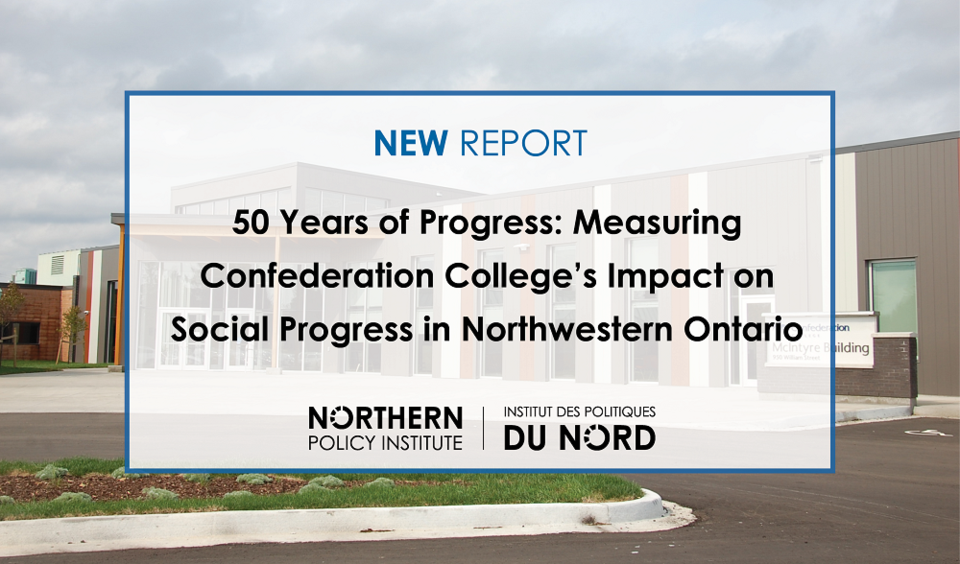November 26, 2019 | Anthony Noga
Confederation College has an observable positive impact on social progress in Northwestern Ontario. This project identified 26 commonly used indicators of social progress that a) can be linked to higher education institutions (HEIs) through existing scholarly literature, and b) have data available at the local level in Northwestern Ontario. These indicators were measured over a twenty year period in the eight communities in the region that host a campus, as well as three counterfactual communities – one from each census division – that could ostensibly have hosted a campus, but did not. These results were tested against two more locations in Northwestern Ontario that do not host a campus, as well as a pair of test cases in the Northeast.
A variety of statistical tools helped determine that Confederation College, rather than other possible factors, was responsible for the observed progress. Red Lake and Wawa both opened new campuses in 2011, a clear and critical juncture in which both saw their relationship to the college grew substantially. Measuring their before and after results in the indicators, and comparing those to the six other locations that did not open a campus, helped distill the role that the college does have and is having on social progress.
The results indicate that those communities that have a stronger relationship to the college tend to have more human capital, as evidenced through their better education and employment statistics, they have more diverse and resilient economies, they enjoy more individual prosperity as evidenced by better income, poverty and housing affordability statistics, and the communities have greater vitality through more stable population sizes, better voter turnout in federal elections, and crime statistics. The latter two findings are particularly compelling as Red Lake and Wawa, having virtually nothing else in common in 2011 save for opening their campuses, saw marked and similar improvement, results not seen in locations that did not open a campus.
A number of pronounced data gaps limited the scope of the research, particularly in tracking health, well-being and civic engagement at the local level. Rectifying these gaps should be a top priority for further research on this important topic.
